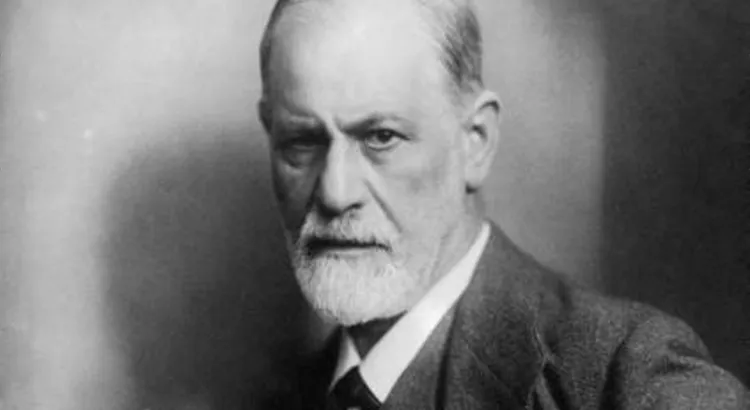Sex Education is a topic of concern for parents and educators. The family is the privileged place to teach and train children and adolescents to understand the gift of sexuality and the correct exercise of it.
Talking about sexuality is positive and enriching; it should never be treated as something dirty or obscene. There must be respect, seriousness, and even admiration for the remarkable fact that we are men and women and can give life to another human being.
These lines are intended as a support to parents and educators, with the conviction that they are the ones who know each child personally and profoundly and can accompany and guide them in the task of becoming adults.
Early Childhood (up to 7 years old)
Middle Childhood (7 to 9 years old)
Pre-adolescence (9 to 11 years old)
………………………………………………….
Early Childhood (approximately up to 7 years of age)
During infancy, children “discover” the existence of the sexes: they know that there are boys and girls and that they are different. At this age, it is essential for parents to tell their children how happy they felt when they knew they were a “boy or girl” at the moment of birth or in an ultrasound scan. The child is developing the basis of their personal security and personality and needs very much to know that they are loved and accepted as they are, by those they love the most: their parents.
It is also very important that children [at this stage] observe a clear distinction in the roles of mom and dad. In the way they dress, the attitudes they use, etc. This does not mean to educate the strict idea that the man works outside the house and the woman inside the kitchen; it is good for children to see dad helping at home and mom at work outside, but to know that there are certain “tasks” that each of them does for the other members of the family.
The small child is selfish by nature; in their world, there are still no other people but themself and mom and dad, who live for him. For this reason, it is crucial in these years to educate in generosity and the understanding that love implies sacrifice and abnegation for others. The testimony of the sacrifices that parents make for their children, that mom makes for dad and vice versa, is better than a thousand words.
Another essential element at this age is developing a trusting relationship with parents. The child must always feel confident that their words are heard, believed, and accepted; obviously, this implies being attentive to small lies or normal fantasies and helping the child to recognize between reality and their dreams and to assimilate that it is better always to tell the truth even if it hurts. This will make it easier for them to ask their parents about their sexuality later on, reducing the risk of being abused. A child who is well cared for will trust his parents. [It is also important to mention that] when warned about strangers, they are difficult prey for child molesters.
Objectives in sex education at this age:
- that the child develops a healthy affection for those around them and for themself
- that the child progressively learns about the sexual differences between men and women
- that they live their bodily reality and its functions in a natural way
- to acquire a vocabulary appropriate to these realities
- that they understand the importance of love in family relationships
- to recognize the role of the family in their life and their role in their family
- to understand that children have a father and a mother, that they develop in their mother’s womb (it is generally sufficient to speak of an initial seed)
- to know the basics of childbirth and the need for increased attention and care for babies
- to understand and live that growth is not only an increase in size but also implies responsibilities.
Means that parents and trainers can use:
- have manifestations of affection towards the children: these will depend on the customs of the family, the character of the children, etc., but never think that because they are no longer “babies,” they no longer need kisses, caresses, hugs, pats on the shoulder, etc.
- always show affection and attention to their questions and comments so that the children see that you have awareness, but without allowing them to abuse.
- be clear and truthful with children’s questions, adapting the amount of information to the child’s capacity to understand.
- take advantage of the opportunities presented by everyday life events: the arrival of a new sibling or cousin will generate curiosity and the possibility of excellent conversations.
- be attentive to the information children receive on television or other media. Know how to show what is natural and that there are people who engage in different behaviors that are not appropriate.
- From the age of 3, children begin to understand the importance of privacy and modesty. Encourage it with testimony and words.
- If children are caught in inappropriate games or behaviors, distract them and try to get them interested in others. If they insist or ask why they can’t play that, say it’s not okay and don’t bring it up again.
Middle Childhood (7 to 9 years)
This is a relatively quiet age in which the child matures intellectually and morally. It is often called the age of obedience because children are usually docile to instructions from adults. At this age, sexuality is expressed in a lively sense of modesty; children no longer want their mothers to help them bathe or to accompany them to the bathroom. It may signify the beginning of their sense of self-expression of their own dignity. Initially, boys and girls mix easily, but gradually, they begin a progressive separation of the sexes, no longer playing together. They show interest in the sexual roles and characteristics of both sexes. There is greater curiosity about pregnancy and the father’s role in procreation. At age nine, they begin to look for informative material, such as drawings and explanations, and ask their friends for it. If any in the group obtains information easily, they will share it with their classmates, even if it’s not in the best possible way.
It is a serene time, but sexual curiosity still exists, and nowadays, there are many ways in which a child can access information without the need to consult their parents. Don’t be afraid to get ahead of yourself; you can test the waters with comments and questions in quiet and peaceful moments, talking without interruptions to see how much they know and what interests or curiosities they have.
In general, the child will ask questions; if they do not ask them, it is better to anticipate and raise the subject. Their interest is an intellectual, healthy curiosity to understand something that belongs to everyday life. It is always better to receive this information from their parents rather than from a friend or a magazine or movie; it is better to be a little ahead of time than to be late.
When you start the conversation, it should not just be a simple information session, but indeed training in love. It is unnecessary to say everything at once; you can give some basic information and leave the door open for future “talks.” Finish, for example, with “when you have another question or doubt, tell me, and we can continue,” “there are other parts to the same topic, but I think that it is enough for today, so we have a topic of conversation for another time. Never be afraid to tell the child that they should learn all this from their parents or formators than from friends or strangers because they will not always have all the information and may be mistaken.
Case: A nine-year-old girl received this information from a classmate of the same age: “Daddy and mommy sleep naked, daddy on top of mommy, and that’s how children are born.” Upon discussing it with her younger sister, the latter cleverly decided to tell their mother, who brought them together for a “woman-to-woman” talk. She gave them a brief explanation of sexual relations in a marriage, as far as they could understand, and took the opportunity to inform them about menstruation. The subject came up again several times in the following years, and the father was present on some occasions. When both girls had their periods a few years later, they were neither surprised nor distressed.
Regarding sexual relations, the mom chose to be clear (given what they had already heard from their partner) but specified that it occurs in marriage and for love; and she did not elaborate too much on the subject.
It is essential at this age to continue forming children integrally, in moral values, in the exercise of the will, and in the docility of their own conscience. At this age, they begin to be able to understand why certain actions are not done, why their parents forbid them to keep certain friends or to go to certain places; but to understand, they need to know; parents must dialogue with their children, lead them to internalize and to make rules and principles of conduct their own.
Some practical elements that can help:
- getting them used to making small sacrifices
- encourage private moments of conversation with each child:
- when going shopping, when picking up a sibling, etc.
- know what material our children receive: TV, magazines, Internet, friends, etc.
The more specific objectives of sex education at this age are in an intermediate phase between those of early childhood and pre-puberty. In this sense, much will depend on the maturity of each child, the situation of the family, and the surrounding reality. Therefore, parents and educators need to understand that each child is different and that they must adapt and adjust to their needs. This is demanding, but it is a sign of true love and affection.
Means that parents and educators can use:
- continue to show affection and trust in them, they may “refuse” demonstrations of affection because “I am grown up,” but it is a front, and they need to continue to feel that they are important to their parents
- maintain a climate of trust, let children know that their parents listen to them without teasing or rushing them, that they always answer truthfully, that they do not break their confidences unnecessarily
- encourage “private” conversations, take an interest in children’s tastes, worries and interests
- take advantage of the moments when you are alone with your children, when picking them up from school, when they finish their homework, when dad has had a business lunch, etc. If they do not occur spontaneously, then it is good to create them: invite them to eat out “just mom or dad and you, so that we can talk about ‘your things’ – [what’s going on in your life].”
- get to know the friendships and activities that the children are involved in, get involved in them, and be present
- be attentive to changes in behavior; although it will hardly imply something very serious, it can be a sign of concern and a perfect occasion to start a conversation.
- at this age, children are capable of reasoning and understanding the reasons for rules and directions. Begin to give them reasons for things, explain to them, and never tire of repeating that they are looking for their own good and that sometimes it involves saying no or setting limits.
Pre-adolescence (approximately 9 to 11 years of age)
At this age, children enjoy camaraderie with others of the same sex and have an enormous energy and capacity for activity, which is exhausting for adults. There is also an antagonism between the sexes that peaks around the age of ten. Boys “despise” and laugh at girls, and girls consider them “wild” and “uncivilized.” In general, at this age, they keep apart on their own initiative and often dislike activities in which they are brought together, especially boys, who already possess much more physical strength and tend to play rougher games and who feel oppressed when they are asked for more gentleness because “there are girls here too.”
Some boys, and mainly some girls, may reach puberty at age 11 or earlier. It is good that they already know this, but do not exaggerate it.
At this age, children are already clearly aware of what is wrong, although sometimes they believe that things are serious faults that are not even remotely so. Parents and educators should continue to work on the formation of the conscience and will of their children, on their generosity and concern for others. It is also an excellent age to interest children in sports and activities that lead them to use the enormous energy they have, being also an excellent way to collaborate in the formation of the will and the capacity for sacrifice – if you want to be good at sports, you must train and sacrifice.
At this age, there are often periods of ambivalence. Children go from the most obedient and docile to absolute rebellion. They are beginning to assert themselves and form their own character. The conscience starts to build a more personal value system. The company, proximity, and witness of adults around children is very important. If there is no coherence or the words do not correspond to the experiences, the child will be confused and will not know how to react, or will simply believe that everyone is like that and, therefore, it is possible to say one thing and do another; to do one thing one day and the next day something else as it suits me or as I “feel like it.”
Parents have the difficult task of finding the right balance between freedom and authority, avoiding excesses of abandonment, neglect, affection, overprotection, and authority. Children at this age need to be given limits and guidelines, but they also need to be allowed to take responsibility and make choices. It is necessary to approach this little by little. You can start by allowing them to choose what clothes they want to wear; the first few times, it may be advisable to offer them options: blue or brown pants; then, when they feel more confident and have some aesthetic parameters, we can let them choose freely. Or it could be the dessert, the game, or the place to go for a walk.
On the other hand, it is already possible to give them responsibilities. From an early age (four or five years old), children want to “please” their mothers with small services, which they may not do as well as they do, but it is good to let them do it because this way, they learn to share the work. When they reach this age, they can take responsibility for some functions at home: feeding the dog, taking it for a walk, taking out the garbage, drying the dishes, setting the table on Sunday, etc. Always appropriate to their capacity and ability.
There is no doubt that this is the stage in which it is necessary to openly discuss with them topics related to sexuality, procreation, etc. The parents should determine the exact and most appropriate moment since it is their responsibility to best explain it to their child. The school can collaborate, but respecting the leading role that the family should play.
From age 10 (or even earlier), girls begin to worry about “being a woman,” relationships with boys, becoming a mother, and virginity. It is vital that the mother has become their friend and confidant, that she is the one who gives them the information, the answers and helps them to form their hearts and feelings in order to mature correctly. Unfortunately, today, few moms consider themselves prepared and believe they should leave everything in the hands of the school.
At this age, girls can fully understand everything related to their sexuality and are curious because they are experiencing body changes. They will have classmates, friends, or cousins who have already reached puberty, some of them will have boyfriends, or they will see couples at school and in places of entertainment. You have to talk to them, explain everything to them in a language they can understand but correct, not believing that “it doesn’t even occur to them” and even less that “they already know everything.” There can never be enough to educate in true love, in the value of chastity and virginity as a sign of self-respect and love for the person with whom she will be united in marriage.
For mothers and educators or formators, it can be helpful to initiate the topic, to give a talk to a small group about the physical and physiological changes that occur at this stage, and to leave the door open to answer personal questions when needed. It is always necessary to go beyond the purely physiological or biological; in every answer and every conversation, it is necessary to lead to the formation of the heart, of their affections, and the appreciation and respect for their body and heart.
Objectives of sex education at this age:
- to promote the harmonious and integral development of the person as a value in itself, accepting one’s own sexuality
- to favor an open attitude towards others in the face of egocentric and isolating tendencies, given that to accept and live sexuality fully is to recognize our being as a being in relationship and openness to others
- to promote respect for the human dignity of men and women, with the recognition of equal rights in the political, economic, and legal spheres, both in the family and society
- promoting knowledge of the physical, psychological, social, and ethical processes related to sexuality
- knowledge of abuses and deviations as a protection against them
- helping to eliminate fears and anxieties related to sexual development and adjustment, thus preparing them for the arrival of puberty
- to achieve a confidence-building education, not only sexual but general education, which helps the child to incline his nature toward goodness
- to promote a sense of responsibility in the personal realization of one’s own sexuality in its personal and communal dimensions
- to accompany the child at this stage so that they can establish and maintain the order of values and avoid concentrating on the sexual sphere; this is the moment because once the child enters puberty, they will experience their sexuality with great sentimental strength, and it will be more difficult for them to be objective and open to confidence with parents
- lead them to make a life choice in which the purity and the decision to live their sexuality adequately and integrally is made by the child or pre-puberty in a personal way and by self-conviction
- to continue with the formation of religious, moral, and human values, the basis on which it is possible to build the edifice of a personality integrated with their sexuality in a natural and healthy way.
Some considerations:
- children should learn about their sexuality little by little until their full discovery in adolescence.
- the family is the main educator of children in sexuality, and within the family, the parents.
- sex education should be integrated in order to provide a complete moral formation of children and young people, seeking to form a healthy attitude towards human sexuality based on respect for the dignity of the person, the virtue of chastity, and the practice of self-discipline [2].
- in the family, sex education does not need to be programmed; it should be spoken about at the right time, with occasional teaching often being the most effective
- the basis of successful sex education in the family is the trusting relationship between parents and children. If children and adolescents feel free to present their questions and doubts to adults and know that they will receive attention and an honest answer, they will always come to them and look for the necessary information.
- a healthy family structure is one of the best teachers of sexuality for children and adolescents.
- educators should collaborate with parents, trying to involve them in the programs that are followed in the school
- teachers and parents teach more by testimony and example than by words.
Means that parents and educators can use:
- in conversations, use correct terms without turning them into a scientific dissertation.
- unite sexuality and affectivity: the love between a man and a woman is the foundation and reason for the experience of sexuality in marriage.
- to treat at the end of the stage, mainly with girls, the topics of virginity, homosexuality, and pre-marital relationships; without details, but from the point of view of the experience of true love (there are people who have not learned because it was not explained to them, that the experience of true sexuality needs to wait for the person with whom they will unite their life to form a family, that true love is the one that knows how to wait and respect the other and the one that does not seek to satisfy its own selfishness but to give itself to others, etc.). Ideas such as these become ingrained in the minds and hearts of the children, and even if they later become distant or dialogue becomes difficult, they are there and will come out at the right moments).
- it is important to reinforce the message about the need to live modestly and care for one’s own body and privacy. In general, what they see in advertising and in public places is opposed to this. It is important to help children create their own opinions and decisions and not be carried away by the environment. This is why it is so important to help children to form their conscience correctly.
Taken from www.mujernueva.org – (Mujer Nueva, March 18, 2004)
[1] Maturity and sexuality. Pedro Trevijano, Ediciones Sígueme. P. 72 and ff.
[2] Pornography and violence in social communications. A pastoral response. Pontifical Council for Social Communications, 9 – V – 1989, n.24. (Quoted in Madurez y sexualidad. Pedro Trevijano, Ediciones Sígueme. Pág. 85).
Original Post: Here
Another Post: What should we consider for the correct education of our children?















